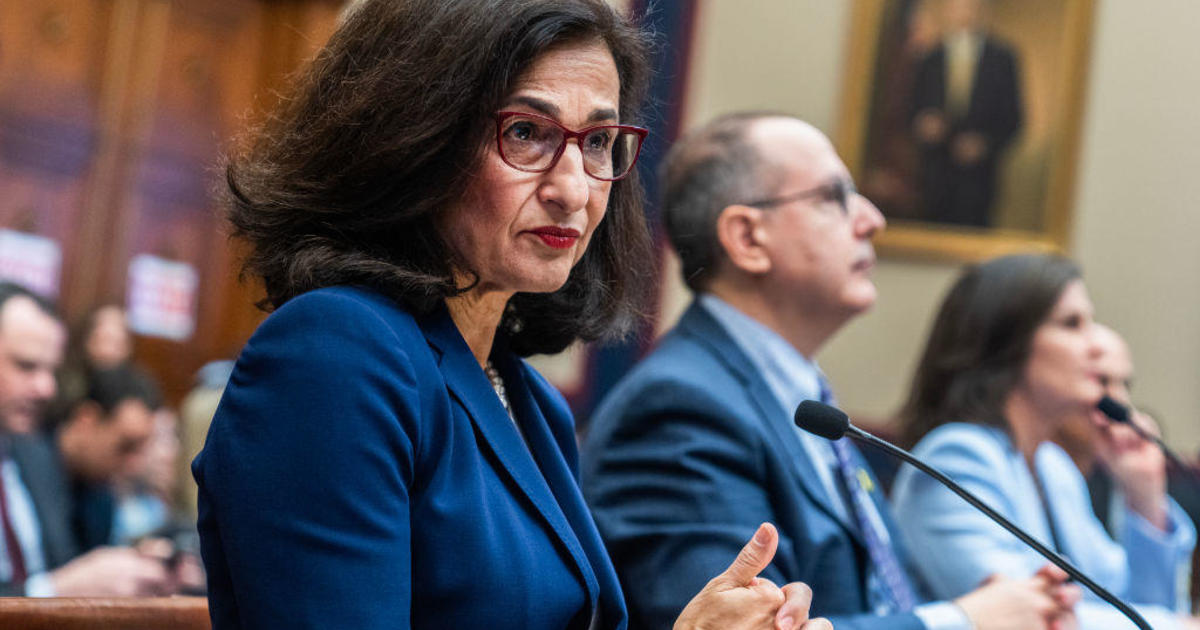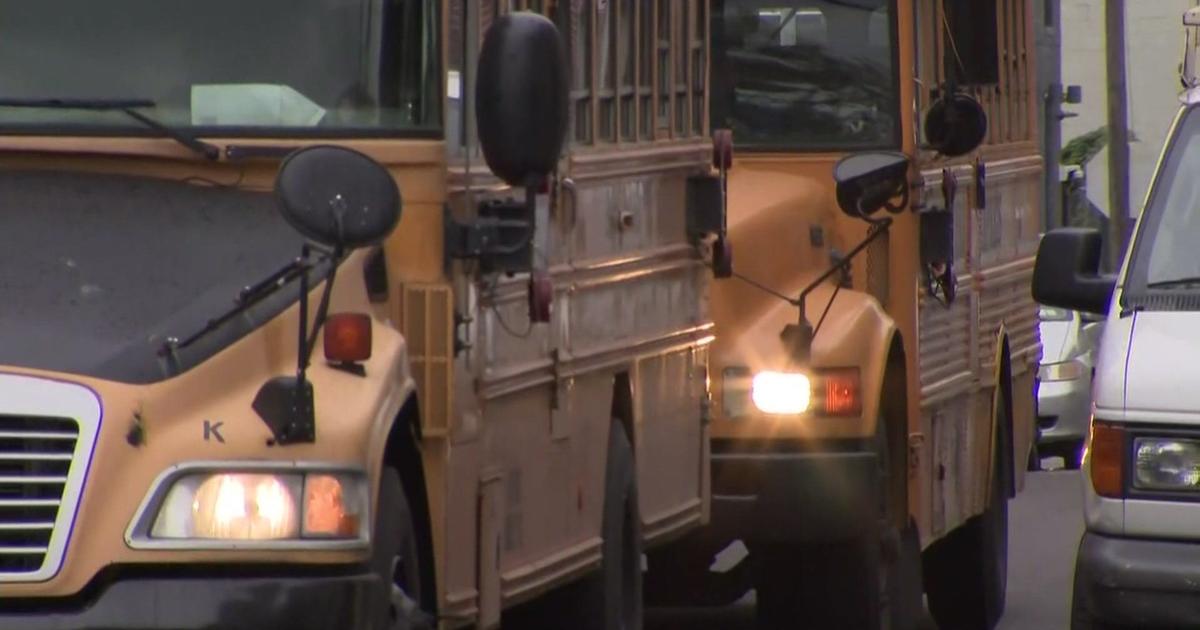Textbook Rentals No Cure For Rising College Costs
NEW YORK (AP) -- Textbook rental programs at many of the nation's colleges -- touted as money-savers for students -- are limited by the number of available titles, publishers who release frequent new editions and professors who believe their right to choose course materials is essential to academic freedom.
About half the nation's major college and university bookstores offered textbook rentals this fall, according to the National Association of College Stores, hoping to cut the $600-$900 students spend buying books each year. That's roughly a fivefold increase from around 300 stores a year ago.
But schools and publishing experts say the programs are expensive to start up and difficult to operate. In addition, there are complaints that rental prices are still too high, even though they can be as much as half the cost of a new book.
Federal lawmakers, increasingly concerned that textbook costs create a barrier to affordable higher education, have endorsed a pilot program for rentals. Twelve schools were awarded up to $1 million each this fall under a congressionally mandated U.S. Department of Education program this fall to create rental programs, several of them targeting lower-income or first-generation immigrant college freshmen.
In addition, a federal law went into effect earlier this year requiring publishers to give professors the price of textbooks and to list revisions to new editions; it also asks schools to release book lists early so that students can shop for best prices before classes begin.
Publishers face no consequences if they don't follow the rules, however.
"We are prohibited even from enforcing it," said Jane Glickman, a Department of Education spokeswoman. "It's like guidance to the schools."
In the end, students will decide how they get their textbooks -- and they have an ever-expanding galaxy of choices.
They can buy them new, shrink-wrapped at campus stores. They can search online for discounted used copies at numerous websites like Amazon.com or Bigwords.com. They can download them to their computers or rent them -- from their campus bookstore, from online websites and even the publishers themselves.
Two of the largest bookstore operators, Barnes & Noble and Follett Higher Education Group, have spent millions to build their own Internet rental portals in the face of competition from websites, stocking up on inventory and developing tracking software.
Yet for all of the innovation from digital media and the Internet, prices are still set by publishers, who market directly to faculty. Faculty, in turn, decide titles for study, often without considering cover prices.
That means students are still paying hundreds of dollars each semester.
"It's ridiculous. I think we pay so much for tuition already, books should be at least affordable," said Janelle Grant, 26, an East Orange, N.J., native and sophomore at the University of Richmond in Virginia. She said she shopped around this semester before deciding to buy and rent online, spending about $300. "I spent a lot of my summer searching for cheaper books."
NACS says about 1,500 of its 3,000 members are running rental programs this fall and more members are considering their own, but they are wading into the model with trepidation. Startup costs can be staggering: Schools have to stock inventory, possibly hire new staff and invest in computer software to track the books.
And rentals carry risk, said Charles Schmidt, a spokesman for NACS. If a publisher changes an edition or persuades faculty to use a different one, the rental model won't work.
"You need to rent the book about three times to get the profit back," he said.
James V. Koch, an economics professor at Old Dominion University and former college president who has studied the textbook market, said that for a rental system to be profitable, books have to be standardized.
"Some faculty members look at this and see it as a violation of their academic freedom," he said.
A survey of 100 campuses nationwide showed students spent about $600 on textbooks for the 2009-2010 school year, according to Student Monitor, a college market research company. The Student Public Interest Research Groups, a national advocacy group, says it's more like $900 per year.
Rental programs took off this fall because Barnes & Noble and Follett got behind them. Each of the companies operates hundreds of campus bookstores.
"The thing that made it go is that the national bookstore chains finally started to leverage their power to offer rentals nationwide," said Nicole Allen, of Student PIRGs. But she said rentals were far from perfect. "If the new price is outrageous, the rental price is outrageous," she said.
Bruce Hildebrand, of the American Publishers Association, said students can buy cheaper versions of books in a variety of formats -- but don't.
"The majority still choose the traditional, hardcover, full color textbook," he said.
A recent NACS survey found 75 percent of students preferred print over digital versions of textbooks. There also have been complaints about the high cost of electronic textbooks and limitations imposed on how many pages can be printed for free.
Rentals, like the vibrant used book market, also are limited by constant revisions imposed on textbooks: The California State Auditor said in 2008 that new editions were published nearly every four years. Experts have compared it to the automobile industry, where manufacturers have an incentive to come out with a newer model to make the older model obsolete.
But Susan Aspey, a spokeswoman for publisher Pearson PLC, said the used book market doesn't compel companies to print new editions. "The market demands the latest information, especially in disciplines that are dynamic with new discoveries and innovations," she said.
Given the threat of online sites, even one of the nation's largest private universities has begun offering rentals this semester in a partnership with Bookrenter.com.
"Most stores realize that our customers have options. We're not the only ones renting books," said Philip Christopher, senior director at the New York University bookstores.
Follett invested $125 million in its Rent-A-Text website and has rolled out rentals through the site to 780 of the nearly 800 stores it operates around the country.
It's too soon to tell how well the model is working, said Follett spokesman Elio Distaola. "We're renting books for less than what it costs for us to put them on the shelves," he added.
Ultimately, such programs could help poor students most.
At Mountain San Antonio College in Walnut, Calif., one of the state's largest community colleges with over 30,000 full-timers, being able to get affordable textbooks into the hands of students was critical, said Suzanne Luetjen, director of auxiliary services, who applied for the federal grant.
"My focus was to get affordable textbooks into the hands of first-year students," she said. The school received nearly $1 million, of which about $700,000 will go toward stockpiling inventory.
"We had tried digital books, used books, e-books, and we've tried custom books. And it just kind of seems that that wasn't reaching enough students," she said.
At Hostos Community College in the Bronx, more than 50 percent of students qualify under federal guidelines as low-income students.
Querubi Contreras, 26, said she rented her sociology textbook this semester.
"It's not bad at all," said the forensics accounting student. "It was a lot less and I can use it the whole semester."
She paid $54. It would have cost her $125 new.
--------
(Copyright 2010 by The Associated Press. All Rights Reserved.)



